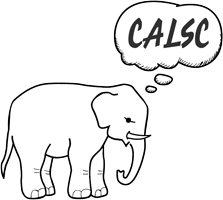An examination of computer memory training in children
Leonie Aspinall
University of Hull Special Psychology (BSc.)
Supervisor: Dr. C. Singleton
May 1999
We are grateful to Dr. Singleton who kindly provided a copy of this unpublished research of which the Executive Summary is provided here.
Executive Summary
A number of previous studies have demonstrated that memory can be improved by training. Past research has considered the effectiveness of training using a computer based approach, primarily in adults, but also in children. This present project focuses on the benefits of training on children's short-term memory, and how this might have implications for education.
There are two main aims involved in the study.
- The first is to evaluate the effectiveness of computer-based memory training, specifically the program Mastering Memory (Mitchell, 1996)
- The second is to determine the most beneficial form of training
These objectives stem from prior research considering the use of computer training programs, and how they might be of value both at school and within the home. Computers provide a cost-effective and accurate means of training and assessment that can be used, if necessary, without professional supervision. It is these advantages which have led psychologists to examine how they might be able to utilise this advancing technology. Mastering Memory (Mitchell, 1996) is one of a number of computer memory programs that have been formulated in recent years. It provides a comprehensive, detailed training package to aid the recall of sequences, and can be applied to a variety of age ranges.
The second aim considers two different forms of training to establish the most productive. This theory stems from research into the different types of memory and how the information we are given might be processed differently within the brain. A large amount of research indicates that verbal or spoken stimuli are processed in a different way to visual or perceived stimuli. The most influential research carried out in this area was by Baddeley and Hitch (1974) who proposed the Working Memory model. The main hypothesis of this model is that there are two different systems for processing the verbal and visual informaion we receive. A large amount of research has supported this view, and indicated that the presentation of information can play a key role in determining what is remembered. It might therefore be assumed that the form of training given, whether it be verbal or visual, should be specifically aimed at the memory deficit being displayed. Yet research has suggested that a combination of visual and verbal training (multi-sensory) is the most productive form of training. The present research aims to review this conclusion and determine whether in fact a multi-sensory approach is the most beneficial.
The study involved 51 children (19 females and 32 males) aged between 7 years and 2 months and 9 years and 6 months. These participants were initially divided into 2 conditions, experimental and control, in accordance with their results on a memory test (pre-test). The control condition (27 participants) acted as a comparison group, and received no training (Group 1). The experimental group (24 participants) wer divided into half again, 12 participants received purely visual training (Group 2), and the other 12 participants received a combination of visual and verbal training (Group 3), both using Mastering Memory.
The trained participants were placed in pairs and each received exactly the same schedule of training, the only difference being that Group 2 received the information visually on the screen and Group 3 received the information both on the screen and spoken by the computer. After 6 sessions of training, lasting about 20 minutes a session over a period of 3 weeks, a second memory test was administered. This second test (post-test), as with the first, was carried out by all 51 participants. The post-test was a means of assessing whether any memory improvement had occurred, and if so which condition displayed the greatest improvement.
Results from the pre- and post-tests were collected and analysed using statistical tests. The findings indicated that there was significantly greater improvement in those who received training (experimental conditions), compared to those participants who did not receive any training (control conditions). This confirms the belief that computer training, specifically Mastering Memory, can improve recall.
Analysis of the results for the two trained conditions demonstrated no significant difference between the improvement shown for the two different forms of training. This contradicts the view that a multi-sensory training approach is the most beneficial, and fails to support the past studies in this field which report that a combined approach is the most productive. A number of methodological problems, occurring due to time and sample constraints, may account for these surprising results. A major limitation with the study was the difference in ages betweenthe three conditions. The average age of participants in the visual/verbal training group was considerably lower than the average age of participants in the other two conditions. This could explain why Group 3 did not perform significantly better than Group 2, as expected. A number of limitations, including the sample used and educational background of participants in teh Groups could also be cited. Further research into this area might examine the use of purely verbal training, or discuss the relative benefits of memory improvement with regard to enhancing reading ability.
In conclusion, the results confirmed the view that memory training using Mastering Memory is an effective and efficient means of improving recall. Contrary to expectations, the findings did not demonstrate significantly greater improvement for those participants receiving multi-sensory training, compared to those receiving purely visual training. Consequently, computers have been shown to provide a valid means of training that can be used within education to enhance children's recall. Further research is needed to examine, in detail, the benefits of the varying types of training, in order to determine the most productive form.

